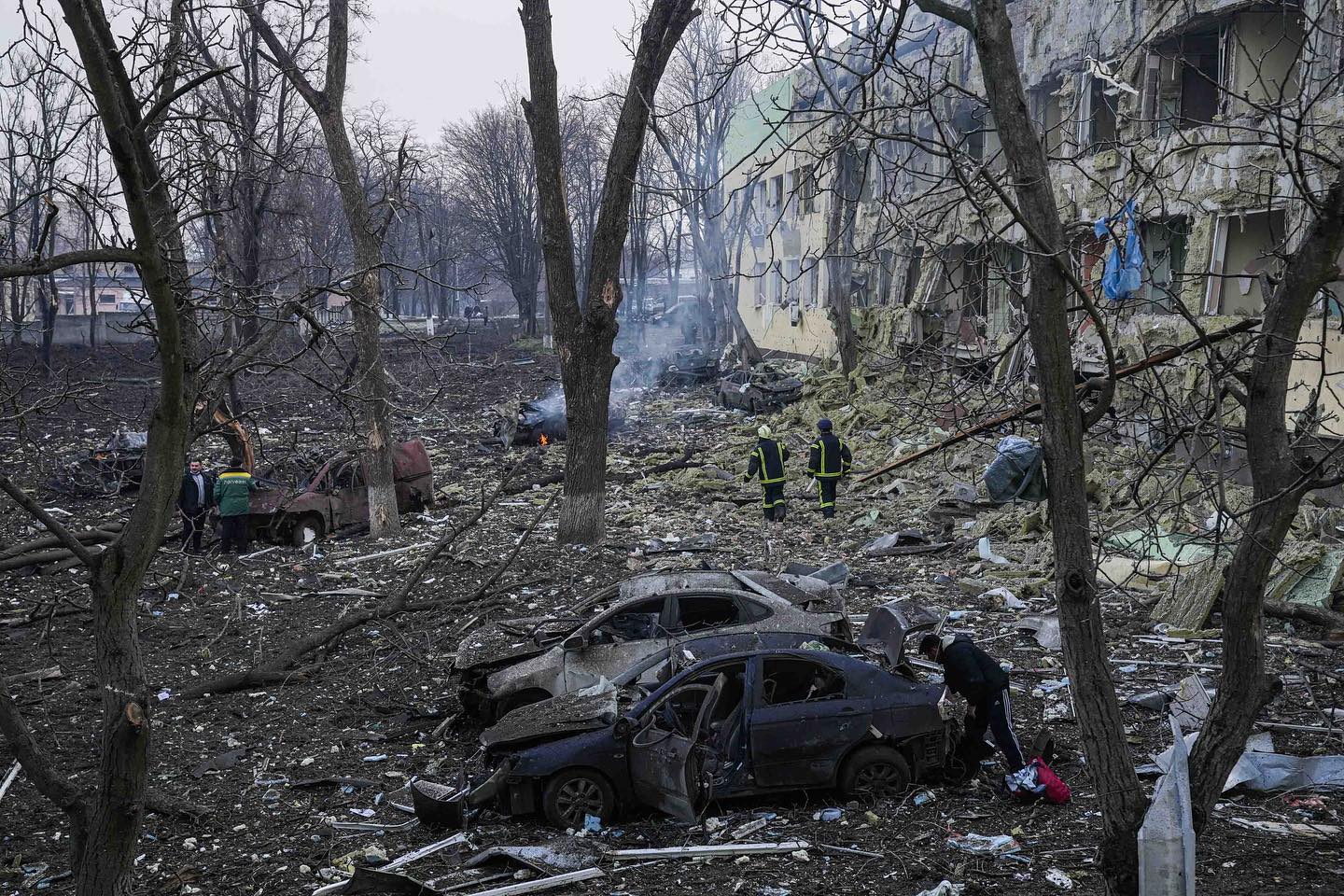Editor’s note: Editorials are articles that present the opinion of the editorial team of the Kyiv Independent.
In its brutal war of conquest against Ukraine, Russia has been blatantly and systematically targeting civilians and civilian infrastructure anywhere its missiles, artillery, and guns can reach.
Shocking scenes of a destroyed maternity hospital in Mariupol, a shopping mall in Kremenchuk in the middle of the day, and mass graves of hundreds of innocent civilians executed in Kyiv’s suburbs are just a fraction of Russia’s atrocities against Ukrainian civilians since its full-scale invasion began.
This fact of Russia’s war is what made Amnesty International’s recent report accusing Ukraine’s Armed Forces of endangering civilians by placing its soldiers and military equipment in civilian areas, particularly hospitals and schools, so shocking.
In its report, the organization alleges that Ukraine’s military tactics “violate international humanitarian law and endanger civilians, as they turn civilian objects into military targets.”
It goes without saying that both sides in a war, even the one being brutally invaded by its neighbor, must respect the laws of war and do everything to protect civilians.
Unfortunately, that is much easier said than done. Wars are messy, they are hard, and neither side is likely to come out clean–even if one side is defending itself from Russia’s imperial ambitions to destroy the Ukrainian nation and people.
But instead of calling on all sides to protect the lives of civilians, Amnesty International chose to run an irresponsible and dangerous report, titling it “Ukrainian fighting tactics endanger civilians,” and overtly blaming Ukraine for the endangerment of innocent lives in the country.
No one is asking human rights organizations to cover up the possible wrongdoings of the Ukrainian military, but anyone publishing a report of this nature while Ukraine is defending itself from Russian aggression must exercise extreme caution when doing so.
We already know what happens when one isn’t careful with an enemy like Russia. In the wake of the report’s release, the Russian government and its horde of online trolls had a field day with Amnesty’s claims.
The report was precisely what Russia has been waiting for: A carte blanche to continue to target civilian infrastructure and claim there were soldiers or military equipment located at the site. All Russia has to do now after an attack on a hospital is point to Amnesty’s report as justification.
In other words, the report poses a direct threat to the lives and safety of civilians in Ukraine.
Ukraine’s leaders were rightfully outraged by the report. President Volodymyr Zelensky called the report an attempt to "shift responsibility from the aggressor to the victim." Foreign Minister Dmytro Kuleba said the report creates “a false balance between the criminal and his victim. Between a country that kills civilians by hundreds and thousands, destroys cities, and territories and a country that defends itself by saving its people and the entire continent from this invasion.”
And following the report’s release, the head of Amnesty International Ukraine Oksana Pokalchuk resigned, writing on Facebook that her team’s concerns about the report went unanswered and ignored before publication.
In the wake of the outrage, one would have expected a thoughtful response from such a globally esteemed organization. Instead, its secretary general, Agnes Callamard, went on Twitter and derided those who expressed opposition to the report as “trolls.”
Amnesty's report is troubling for a litany of reasons. The report is weak in terms of legal distinctions in human rights law, failing to recognize the larger context of Russian aggression.
For instance, the report demands Ukrainian soldiers to "shoot from a field,” avoiding residential areas, during intense urban fighting in Donbas. This is absurd. Essentially, Amnesty International is asking Ukrainian troops to surrender or be killed.
Given Russia is constantly and mercilessly targeting civilians, it would be impossible to defend any city if Ukrainian troops are in a field somewhere.
The report makes absolutely no mention of the Ukrainian government’s repeated attempts to evacuate civilians nor the fact that in many cases, people do not leave areas of heavy fighting simply because they cannot or do not want to.
In attempting to call out what it saw as human rights abuses on both sides of Russia’s war, Amnesty actually adopted a policy of fake neutrality. By putting the aggressor and its victim on an equal footing, the organization is helping to further Russia’s narrative.
There are no legitimate targets in Ukraine for Russia’s military. All attacks on Ukraine, military or civilian, are part of Russia’s criminal aggression.
Ukraine has a duty to protect civilians, but at the end of the day, it is Russia that is solely responsible for any casualties caused by the war. Everyone knows that if Russian missiles and artillery stopped flying, Ukraine’s tanks would go back right into storage where they belong.
The fact that Amnesty could not properly articulate who the main perpetrator of violence in Ukraine was is an indictment on the organization as a whole.
People all over the world have donated to Amnesty International since the outset of Russia’s war, believing the organization would do what it can to protect the Ukrainian people who have become victims of Russian aggression.
Instead, it has just put a target on all civilian infrastructure, endangering the lives of the millions of Ukrainians living with Russia’s war.













